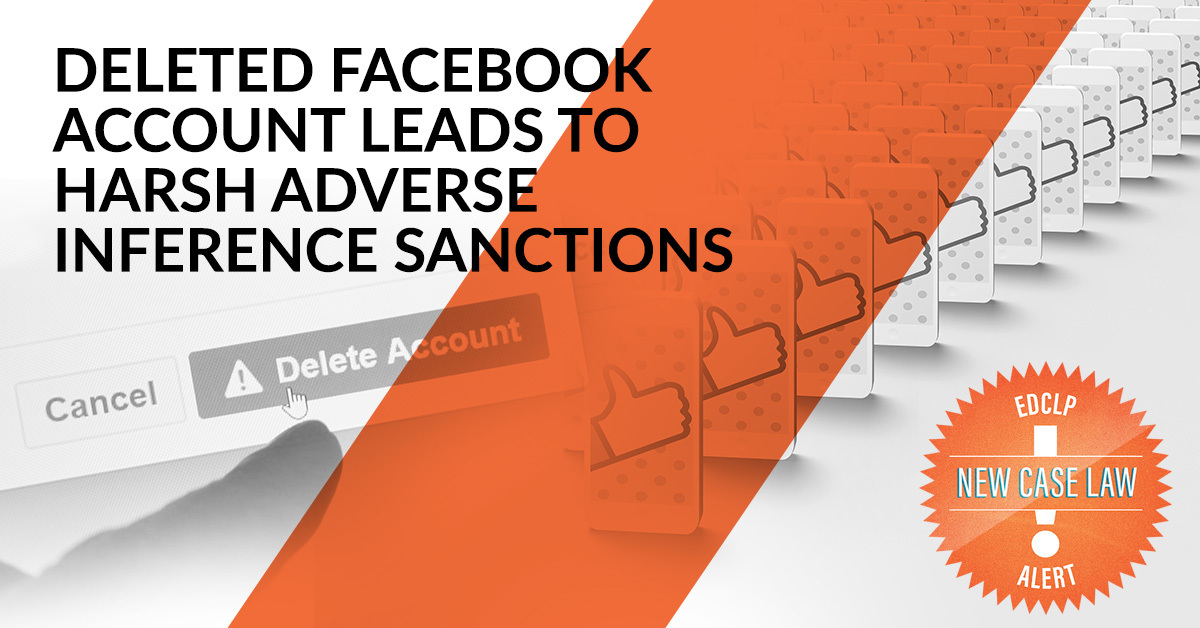E-Discovery
Case Law Alert: Deleted Facebook Account Leads to Harsh Adverse Inference Sanctions
October 8, 2021

Almost every person and business has a social media account, which makes Torgersen v. Siemens Building Technology, Inc. (N.D. Ill. May 21, 2021) so important. Information on social media accounts can give insight into a person’s thoughts, activities and physical condition, making it one of the most important types of data to ensure proper preservation or sanctions may be issued.
Overview
In this personal injury case where the plaintiff fell at a construction site, the defendants moved for spoliation sanctions based on the deletion of plaintiff’s Facebook page. The defendants contend “the plaintiff had not lost a normal life, and contrary to his claims was capable of…potentially returning to work.”
At the start of discovery, the plaintiff had a publicly viewable Facebook page. The defendants served a discovery request seeking the Facebook content. About a month and a half after this request was made, the plaintiff deleted his Facebook account. Even though the plaintiff’s counsel told him not to delete his Facebook account, he did so anyway, claiming that he didn’t remember this instruction.
Because Facebook permanently deletes a user’s account after 30 days, the information requested was no longer recoverable. The plaintiff argued that producing the Facebook page would be an invasion of his privacy.
As a result, the defendants moved for spoliation sanctions.
Ruling:
- Spoliation Sanctions Granted. The court ruled that, under FRCP 37(e), the factors to warrant an adverse inference jury instruction were all present. As a result “the jury must presume the information contained on Plaintiff's Facebook page (i.e., the spoliated ESI) was unfavorable to Plaintiff's claims in the instant lawsuit.”
- The Big Question. In the court’s opinion, the magistrate judge spent the most time evaluating whether the plaintiff acted with an intent to deprive. Based on a variety of actions by the plaintiff (stating he only deleted his account because of online harassment without presenting any evidence of it, shifting explanations about whether and if his counsel notified him about the discovery request, etc.), “[t]he Court agrees with Defendants that when "[t]aken as a whole, the conduct of the Plaintiff far exceeds inadvertence or mistake and demonstrates disrespect for the Court and an intentional abuse of the discovery process."

Expert Opinion by David Cohen, Esq., Chair - E-Discovery Group, Reed Smith LLP
Magistrate Judge Cox’s well-reasoned opinion shows FRCP 37(e) working as intended and reminds that: (i) parties cannot credibly claim a privacy interest in relevant information that they post publicly on social media; and (ii) intent to deprive an opposing party of evidence may be proved inferentially and by circumstantial evidence.
Read Critical E-Discovery Case Rulings from the First Half of 2021 to learn how this and other recent rulings are shaping e-discovery practices.